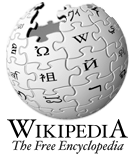United Kingdom general election, 2010
The United Kingdom general election of 2010 was held on 6 May,[note 1] to elect one Member of Parliament in each of the 650 constituencies to the House of Commons, with the exception of Thirsk and Malton following the death of a candidate in the constituency. The Commons is the lower house of the Parliament of the United Kingdom and the election followed five years after the previous one. Voting took place between 7:00 am and 10:00 pm. Local elections were also held in some areas on the same day. The election was called on 6 April, and Parliament was dissolved on 12 April for the ensuing campaign.
The Conservative Party won the largest number of seats but fell short of the required 326 seats to have an overall majority. There will now be a hung parliament in the United Kingdom for the first time since 1974,[1] and the second time since World War II.
The governing Labour Party campaigned to secure a fourth consecutive term in office and to restore support lost since 1997.[2] The Conservative Party sought to gain a dominant position in UK politics after losses in the 1990s, and to replace Labour as the governing party. The Liberal Democrats hoped to make gains from both sides and hoped to hold the balance of power in a hung parliament. Since the televised debates between the three leaders, their poll ratings had risen to the point where many considered the possibility of a Liberal Democrat role in Government.[3] Polls just before election day saw a slight swing from the Liberal Democrats back to Labour and Conservatives, with the majority of final polls falling within one point of Conservatives 36%, Labour 28%, Liberal Democrats 27%.[4][5] However, record numbers of undecided voters raised uncertainty about the outcome.[6] [7] The Scottish National Party, encouraged by their victory in the 2007 Scottish parliament elections, set themselves a target of 20 MPs and were hoping to find themselves in a balance of power position.[8] Equally, Plaid Cymru sought gains in Wales. Smaller parties who have had successes at local elections and the 2009 European elections (United Kingdom Independence Party, Green Party, British National Party) looked to extend their representation to seats in the House of Commons. The Democratic Unionist Party looked to maintain, if not extend, their number of seats, having been the fourth largest party in the House of Commons.
The election was the first to be faced by the Labour leader Gordon Brown as Prime Minister, who became party leader in 2007 after the resignation of Tony Blair. It was also the first election to be faced by the main opposition party leaders, David Cameron of the Conservatives and Nick Clegg of the Liberal Democrats. It was thus the first time since 1979 that none of the three main party leaders had headed a previous general election campaign. For the first time at a British election, the three main party leaders engaged in a series of televised debates. There were reports of electors being prevented from voting as polling stations closed at 10:00 pm, mainly from insufficient time or electoral staff, but also from a lack of ballot papers.
Source: http://en.wikipedia.org/wiki/United_Kingdom_general_election,_2010
สมัครสมาชิก:
ส่งความคิดเห็น (Atom)








ไม่มีความคิดเห็น:
แสดงความคิดเห็น